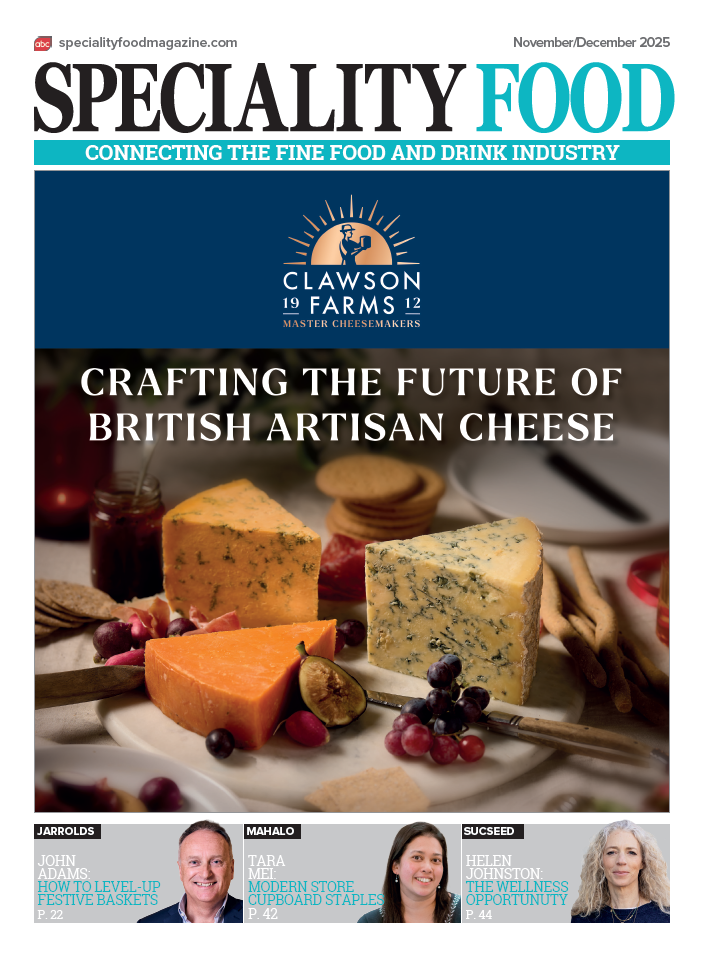“Cheese@BRA – a cheese-lover’s rite of passage”

- How one cheese shop supported locals in lockdown
- Rory Mellis, IJ Mellis: “Local businesses have a chance to flourish”
- Why we should be proud of the cheese industry’s response to Covid
- The joy of cheese grading
- “Keeping the faith”
Big ones, small ones, some as big as your head and much, much bigger, and more cheese than most people will ever see in a lifetime
Piled high and precariously balanced on hundreds of stalls groaning under their weight. Misshapen, knobbly, multicoloured and mould-encrusted cheeses emitting a heady pungent aroma, each one telling a unique and individual story of the history of the area, the culture of the people and the origin of the animal from which they are made. A trip to Cheese, held every two years in Bra, Northern Piedmont, should be part of the rite of passage for anyone involved in the world of cheese. For it is here that you will experience cheese as you have never done before and taste cheeses you will never see anywhere outside the village where they are made, and you get to talk (or wave your hands around and grin enthusiastically) to those who make them. In 2013 there were around 190 stands of which around 50 were not Italian.
For four days, the hilltop town of Bra, home of Slow Food who created and have organised the event since 1998, is completely taken over by cheese, cheesemakers and over 250,000 visitors from around the world. Everyone and everything is caught up in the chaos, excitement and adventure, from the huge elegant arched piazza to the cobbled streets, the schools and even the churches.
Like all Slow Food events, Cheese brings together the joy of eating and sharing good food with an awareness of our responsibility towards the issues of animal welfare, sustainable management of landscapes, maintaining bio-diversity and respect for the whole supply chain. It also brings together those who take the raw ingredients and with passion and experience create the extraordinary diversity and complexity of flavours and aromas that makes each cheese unique.
Beneath the elegant arches of Corso Garibaldi are long counters displaying hundreds of cheeses and wines from around the world. You buy a load of tickets then spend hours trying to decide which combination of cheeses and wines you want to try. Unable to make my mind up, this year I decided to help them set it up and work with the huge team of volunteers, making sure I taste as many of the cheeses as possible!
This year the focus is on cheeses from young herders and cheesemakers, and you will find them and their cheeses in every market, tasting and dinner. Alongside the cheesemakers you will also find many of the world’s leading affineurs offering superbly ripened cheeses from Italy’s Arbiora and Guffanti to Poncelet of Spain, Tradifoods of Portugal and even the US Cheese Group (GFI).
As you would expect, there is amazing street food – some of the best I have ever tasted, great cafés and restaurants, a Beer Piazza offering beers from diverse microbreweries both local and far beyond the borders of Italy, and more. Allow plenty of time not just to taste cheese but to talk to old friends and new.
Taste workshops are an unmissable part of cheese, where you get to learn about some of the most remarkable cheese in the world from the producers, affineurs and leading experts with excellent, simultaneous translations. Book now and discover the world of dairy biodiversity.
Bra is in the province of Cuneo, about 50 kilometres (31 miles) south of Turin. The best way to get there is by the hourly train from Turin. If you drive leave plenty of time as you will have to park and take a shuttle bus to the centre of Bra. The queue to the car park can be quite long at times
It opens at 10am and closes around 10 or 11 pm.
Cheese is a free event that covers the whole of Bra, however there is an admission fee for the Great Hall of Cheese and Enoteca, the Taste Workshops, Dinner Dates and Master of Food events. It’s easier to get distracted and delayed, so plan your time well and make sure you make flexible arrangements to meet friends or contacts! Friday and Monday are the quietest days but it is still pretty crowded.
If you fancy a career change or have children looking for a career in food, check out the University of Gastronomic Science – I’ve been there as a guest lecturer (they called me Professor!) and it was amazing! In Pollenzo, very near Bra, it focuses on the organic relationships between food and cultures. More than 2,000 students have taken courses at UNISG since it opened in 2004, in gastronomy, food culture and heritage, food journalism, farming methods, Italian food preparation and marketing. Students go on study tours in Europe and other parts of the world including Minas Gerais, Brazil. If I was younger and had the time…
more from Cheese Talk
-
“Don’t sway to populists”
25 August 2016 Cheese TalkWith consumer demands continually fluctuating and markets changing on a yearly basis, it’s almost impossible to predict what the new craze or sudden ‘loser’ will be. -
“Making a spectacle of yourself”
12 July 2016 Cheese TalkUntil a few weeks ago I was feeling rather smug about my moved to New Zealand, basking in a four month-long near-drought with autumn temperatures rarely falling below 20ºC -
“Cheese magic – it’s in our culture”
17 May 2016 Cheese TalkWe all know that cheese is magic… really. Some milk, some rennet, some starter culture, some salt and maybe sometimes some controlled mould, and hey presto you have thousands of different cheeses

